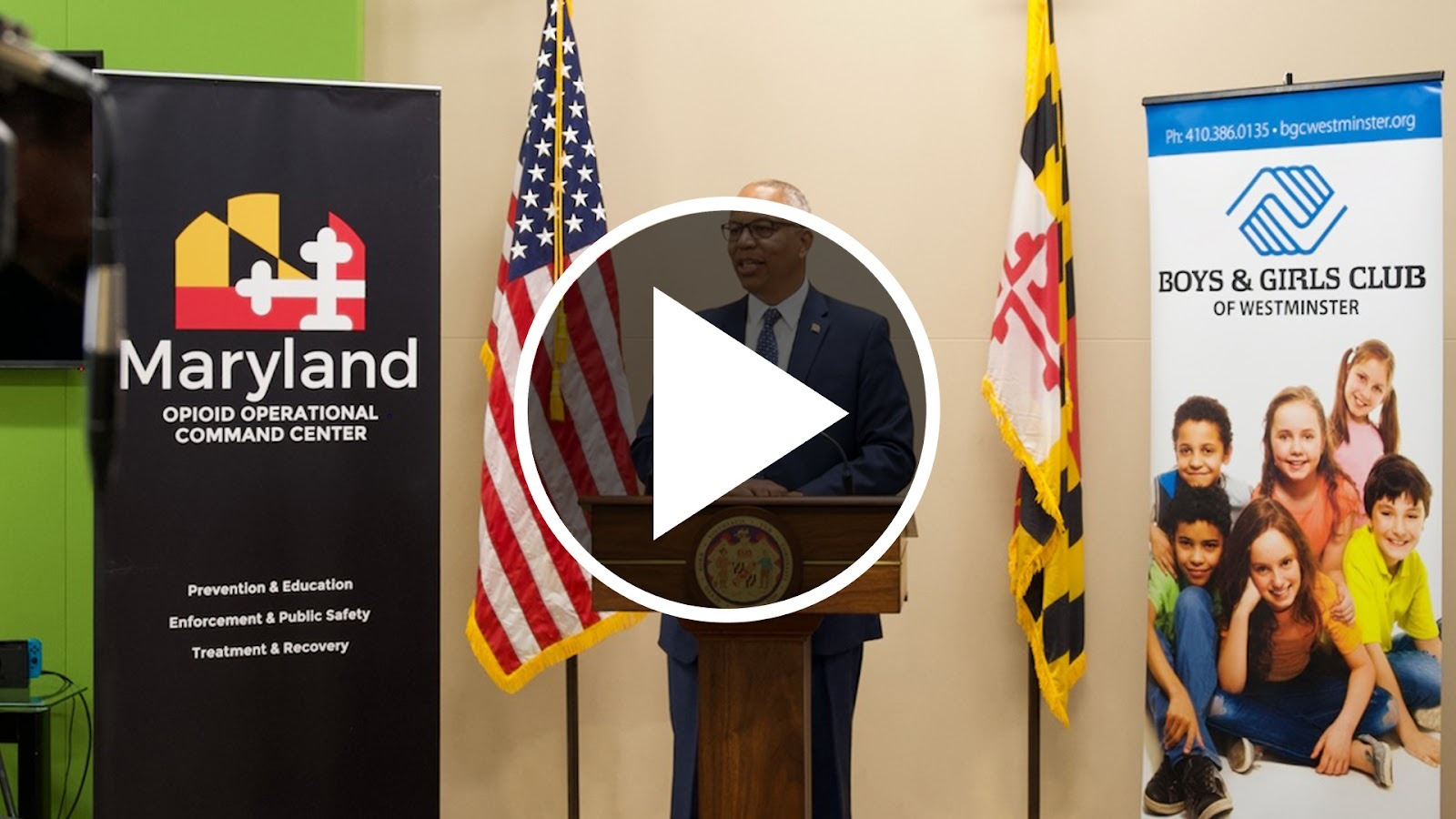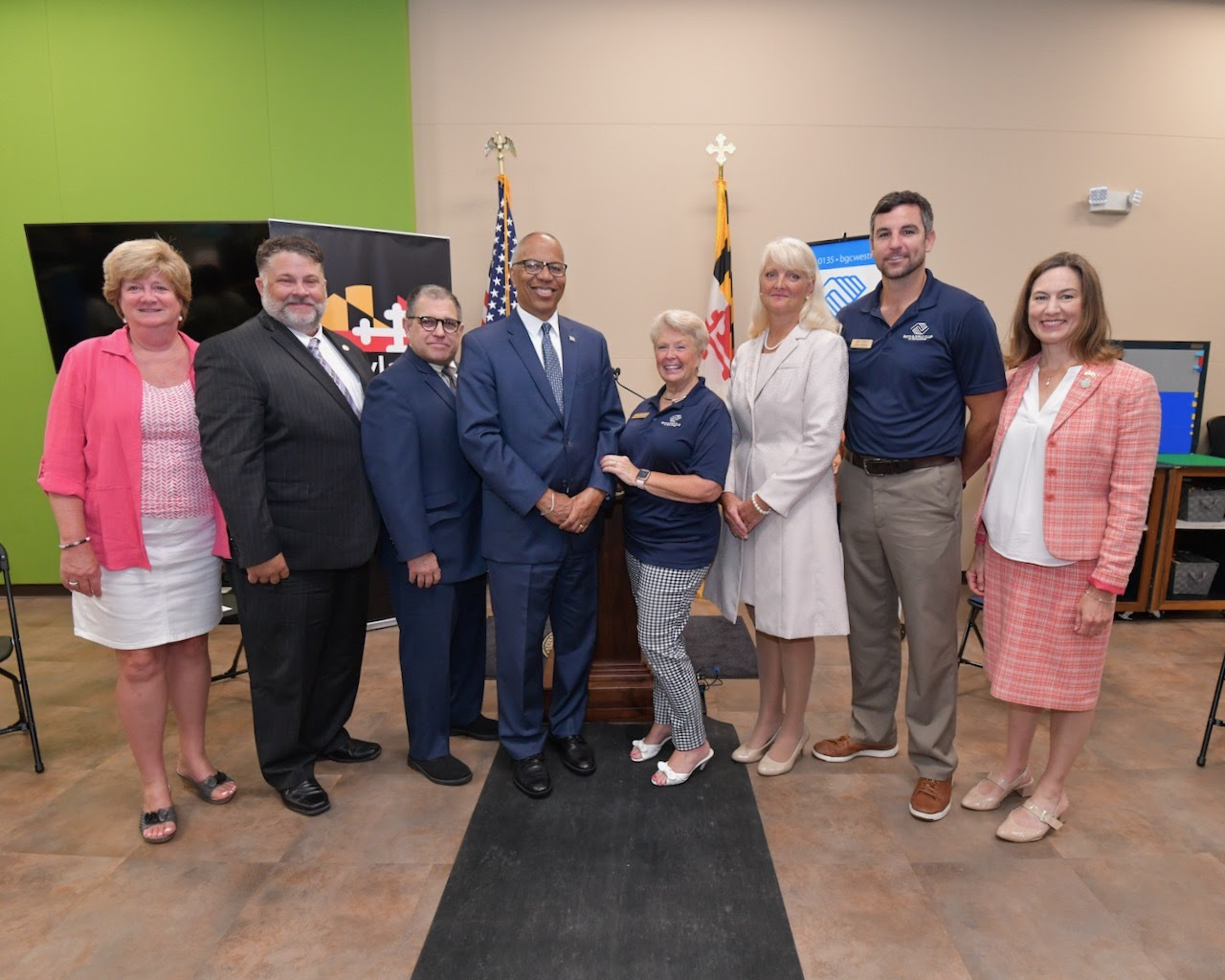
Lt. Governor Rutherford Announces $5.5 Million in Competitive Grants as Part of Maryland Stop Overdose Strategy
Funding to Support 39 Projects that Advance Maryland’s Comprehensive Approach to Reducing Opioid Overdoses and Deaths After Pandemic
ANNAPOLIS, MD—Lt. Governor Boyd K. Rutherford today announced at the Boys & Girls Club of Westminster that Maryland’s Opioid Operational Command Center (OOCC) is distributing nearly $5.5 million through its Competitive Grant Program for Fiscal Year 2022 to fund projects that address the opioid and substance use crisis.

(Watch)
Lt. Governor Rutherford was joined for today’s announcement by Secretary Dennis Schrader of the Maryland Department of Health, OOCC Executive Director Robin Rickard, Governor’s Office of Crime Prevention, Youth, and Victim Services Executive Director Glenn Fueston, and partners from the Maryland Alliance of Boys & Girls Clubs.
“We are focused on addressing the opioid epidemic using every tool at our disposal, and that includes supporting partners who are committed to building a healthier and safer Maryland,” said Lt. Governor Rutherford. “These programs utilize proven and promising initiatives that can create measurable and meaningful changes, and save individuals most at-risk of losing their lives to the opioid epidemic.”
The OOCC will support 39 high-impact projects that include: prevention programs in schools, programs providing alternatives to incarceration for justice-involved individuals, harm reduction programming, peer support services, mobile crisis services, and medication-assisted programs for treating opioid-use disorder. One program to receive funding is the Boys & Girls Clubs SMART Moves Program, which is designed to give youth a positive outlet in their lives and to help them avoid the dangerous path of addiction.
“We are proud to spotlight programs like SMART Moves, which drives healthy lifestyle choices for young Marylanders,” said Secretary Schrader. “By supporting community-based organizations with proven track records of success, we further help set Marylanders on the path away from substance abuse and reduce opioid use and overdose rates.”

The OOCC distributes competitive grant awards to the highest-scoring proposals received from state and local governments and from private, community-based organizations. The proposals are scored based on a uniform set of criteria, including the degree to which the proposals align with Maryland’s Inter-Agency Opioid Coordination Plan and how they meet the greatest needs around the state. In June, the OOCC announced $4 million in block grants to support local prevention, enforcement, and treatment initiatives, as directed by local Opioid Intervention Teams in Maryland’s 24 jurisdictions.
“The Opioid Operational Command Center will distribute nearly $10 million to help combat the opioid crisis in Maryland in the next year,” said OOCC Executive Director Rickard. “We are very excited to see all the great work that our partners will do, and we will be here to support them every step of the way. We are all in the fight together, and I am confident that, together, we can turn back the tide of the opioid crisis.”
The OOCC also announced its first Maryland Stop Overdose Strategy Town Hall on August 26 at Allegany College. The town hall will engage community members, discuss their experiences, as well as what tactics may be effective in addressing the opioid crisis.
The FY 2022 Competitive Grant Program award funding includes:
- Approximately $4.1 million for treatment and recovery programs;
- Approximately $1.1 million for prevention and education programs; and
- More than $300,000 for enforcement and public safety initiatives.
Notable recipients include Dee’s Place, a wellness and recovery center run by the Historic East Baltimore Community Action Coalition, and the Allegany County State’s Attorney’s Office’s “Education or Incarceration” diversion program, which works to direct individuals in need of treatment to appropriate services and an alternative to jail time. The OOCC will also be supporting a project through Maryland’s Prescription Drug Monitoring Program that will help provide additional education resources to opioid prescribers and pharmacists.
A full list of grantees can be found here.
-###-

